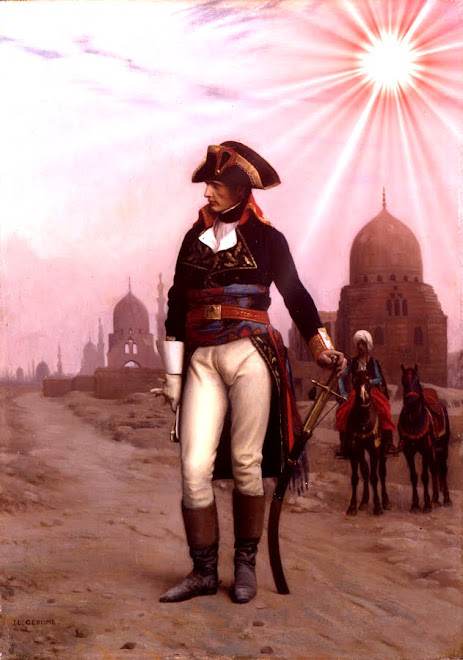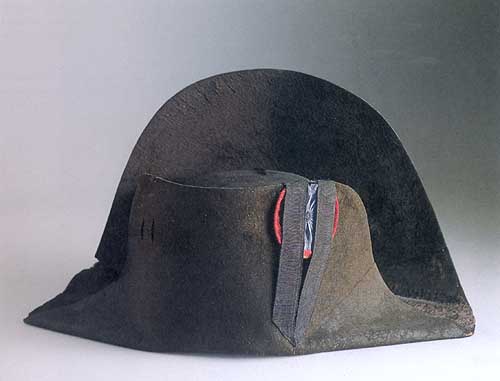FOLIO
RE: NAPOLEON by Georges Lefebvre
January 28th 2010
Dear Sir,
There is a serious error in your 2010 Prospectus in regard to
Napoleon. On page 14 your introduction states: “Napoleon’s determination to emulate Caesar and Augustus condemned Europe to more than a decade of war…”
This is sheer nonsense and the worst example of British propaganda imaginable.
Napoleon did not start the so-called ‘Napoleonic Wars’. Britain and France had been at war, on and off, for decades – long before Napoleon was even born. He was only 19 when the French Revolution began. That Revolution was anathema to the divine right monarchs of the day. Napoleon preserved the real gains of the Revolution, allowing the peasants to retain the former Church lands sold after the Revolution. He also stopped the rebellions in France between Royalists and republicans and fostered trade and commerce.
When he became Emperor, Napoleon sent a letter to George III requesting peace, saying that neither nation could possibly benefit from a prolonged war. This letter was ignored. (Napoleon also asked to join the British Navy as a teenager – this letter still exists in the naval archives). In 1815 after his return from Elba, Napoleon again wrote to all the powers asking for peace but this letter was ignored by England, Austria, Russia and Prussia, who traditionally had carved up Europe between themselves – the Partitions of Poland being a classic and notorious example of this hegemony.
Napoleon was repeatedly attacked by Bourbon assassins paid for by the English Cabinet. This was kept secret from Parliament and the public. Napoleon was treated differently from other ‘legitimate’ monarchs – it was ‘open season’ on him from the start. In the terrible bomb attempt on his life in Paris when he was still First Consul, an innocent girl was left holding the reins of a wagon packed with explosives. She was blown to bits, another woman watching from her doorway was blinded, and a third had her breasts blown off by the explosion – all paid for by British gold.
Many others were killed and wounded in this atrocity. When Charles James Fox heard of this he at first refused to believe the ‘British’ would do such a thing –but they did. Napoleon never retaliated in kind, he refused to send out ‘contracts’ on other European monarchs.
Tsar Alexander was complicit in the murder of his own father Tsar Paul – who had become an ally of Napoleon. Yet, because of the part he played in the downfall of the French Emperor, Alexander was seen as the ‘saviour’ of Europe by the British Establishment.
In 1807 the British Navy killed over 2000 innocent civilians at Copenhagen by naval bombardment, because Canning, the British Foreign Minister, thought that the Danish navy might go over to Napoleon. In fact, the Danish King was very anti-Napoleon and France. That did not save his subjects from being murdered by British shot and shell in cold blood. Even the nationalistic English historian Achilles Rose, writing at the start of the C20th, called this one of the greatest ever stains on British national honour.
Long before he was Emperor (and he made himself Emperor because of all the London-inspired assassination attempts on his life – hence Cadoudal said he tried to get rid of a king but got an Emperor instead), the British Cabinet was intent on destroying Napoleon. Hence they paid over £100 million – billions in today’s money – to Russia, Austria and others to attack France, i.e. in 1805. Napoleon was attacked 90% of the time, he had little choice but to respond militarily to the Coalitions the British organised against him.
France was attacked first in 1805 by Austria and Russia; in 1806 by Prussia; in 1809 by Austria and war was declared in 1815 by the Allies - despite Napoleon’s letters asking for peace. It is a wonder that Napoleon managed to achieve the changes he did in France and Europe when assailed from all sides by the envious, reactionary monarchs of Europe and their aristocratic elites who were determined to retain all the privileges to which they had become accustomed.
In France and the other countries he ruled in Europe, Napoleon gave the Jews the religious rights they were denied elsewhere and he was the first to suggest that they should be given their own territory in the Holy land; in the German states he had groschen made – small coins – so that the poor could get charity from the wealthy and afford bread. It was Napoleon who decided that streets should have odd numbers on one side and even numbers on the other – ensuring that billions of letters from then until now have been delivered to the proper address.
Napoleon was no saint, but he was leagues ahead of the other rulers of his day: George III was mad and because of his arrogance Britain lost the American colonies; his obese, luxury-loving offspring were hopeless spendthrifts – Prinny, the Prince Regent owed £630,000 as early as 1793 - tens of millions in the money of today, squandered on his own pleasures; Tsar Alexander was a patricide, who believed that Russia should control the whole of Europe; Francis of Austria could not resist the lure of English gold and repeatedly attacked France in order to get his hands on some of it; Prussia was under the sway of the war-like Queen Louise, who wanted to emulate the exploits of Frederick the Great. Compared to these incompetent, decadent non-entities, Napoleon was the giant of his age and epoch.
The Russians and Prussians brutalised their peasants and whipped their soldiers – like the British. There was no corporal punishment in the French Army and every man knew that he had a ‘baton in his knapsack’ – that through sheer effort, ability and bravery, he could rise to the heights like Le Tondu, le Petit Corporal, their Emperor Napoleon.
Napoleon was the greatest man of the C19th and was admired by Goethe as just that, as well as being revered by Heine, Nietzsche, Hazlitt, Byron and countless others – like the English crew of the naval vessel Bellerophon to whose Captain Maitland he finally surrendered in 1815.
So please, change those misleading and mendacious words on page 14 – they are beneath the high standards that FOLIO normally sets for itself.
Yours sincerely,
John Tarttelin MA (Hist), FINS.
P.S. I enclose two of my articles for the INS:
The International Napoleonic Society.
More can be read at www.napoleonicsociety.com
I have written a book about the much-maligned French Emperor entitled:
THE REAL NAPOLEON
This gives the other side to two centuries of British propaganda
NOTE
To this day, October 6th 2010, there has been no reply whatsoever from The Folio Society. Perhaps they simply had no reply to the points made in my letter.


